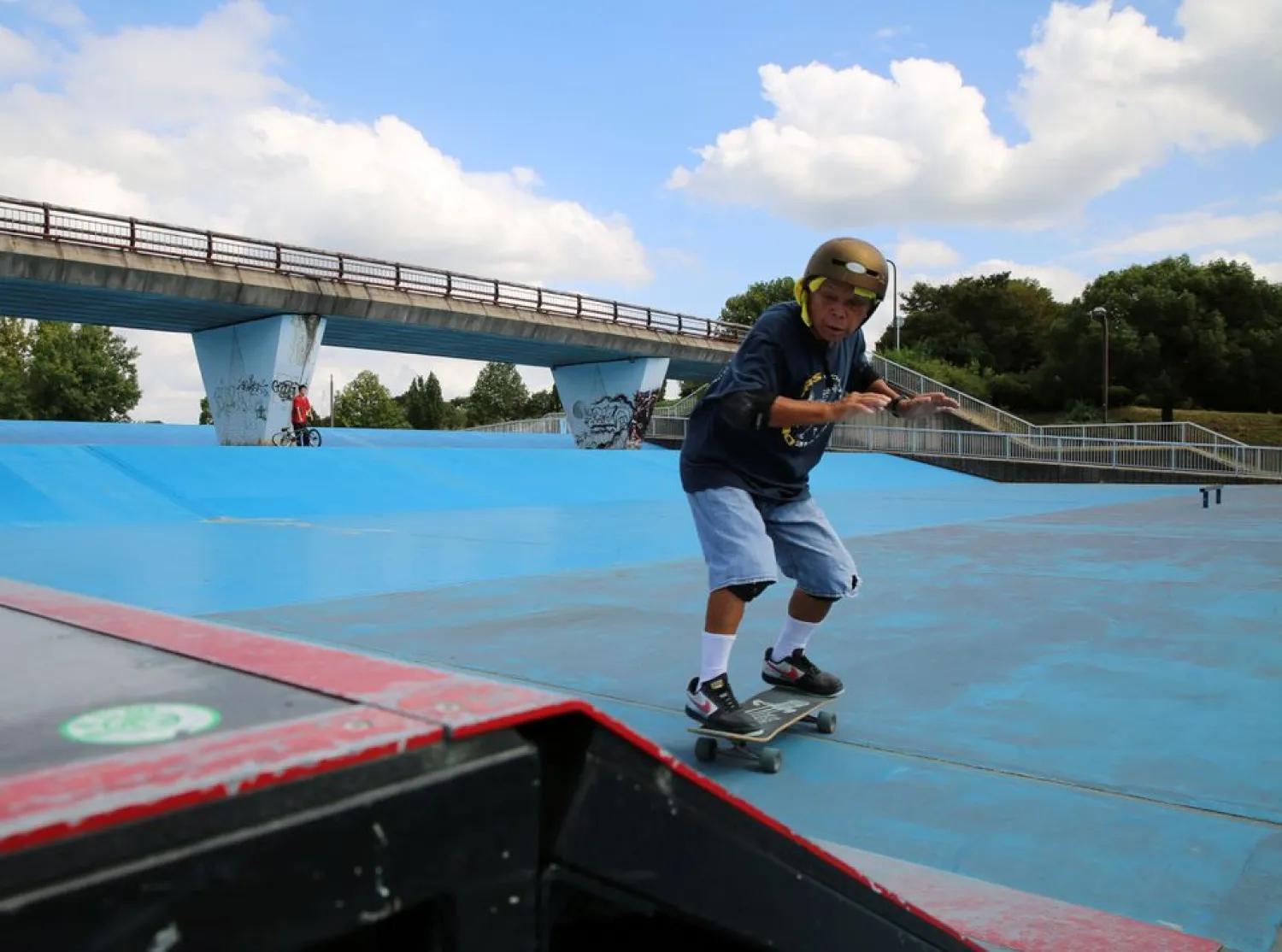Yoshio Kinoshita is living proof that you can teach an old dog new tricks. The 81-year-old rides the ramps at his local skate park in the city of Osaka almost every morning, picking up tips from skateboarders decades younger than him.
"They are all my teachers," said Kinoshita, who worked as a technician in the construction industry before retiring and still works part time as an attendant in a bicycle parking lot.
"At first I was holding on to the railing" he said, before he progressed to mastering a 180 degree turn and other tricks.
Kinoshita picked up skateboarding just two years ago, when he bought a board he saw at a market selling unclaimed goods left on the railway.
The 800 yen ($7.15) skateboard was a spur of the moment purchase that changed the Japanese octogenarian’s life.
In a country that has the most aged society in the world, with more than 35% of its population expected to be 65 and over by 2050, Kinoshita recommended skateboarding as a way to prevent dementia.
"It’s a sport with a sense of tension," he said. "Rather than zoning out, I think skateboarding improves the ability to think even just by a little bit."
"For (old) people like me who try to learn new things, if we don’t practice it little by little every day we will forget how to do it immediately," he said. "That’s why I think I have to (come here) and practice every day."
Kinoshita, who has two children and two grandchildren, said he watched skateboarders at the recent Tokyo Olympics in awe.
All three medalists in the women’s street skateboarding competition at the Games were in their teens, including the country’s own gold medalist, 13-year-old Momiji Nishiya.
"They are really incredible," said Kinoshita. "To be honest, I can’t beat those 5-year-old, 4-year-old or 3-year-old kids. That’s for sure."









